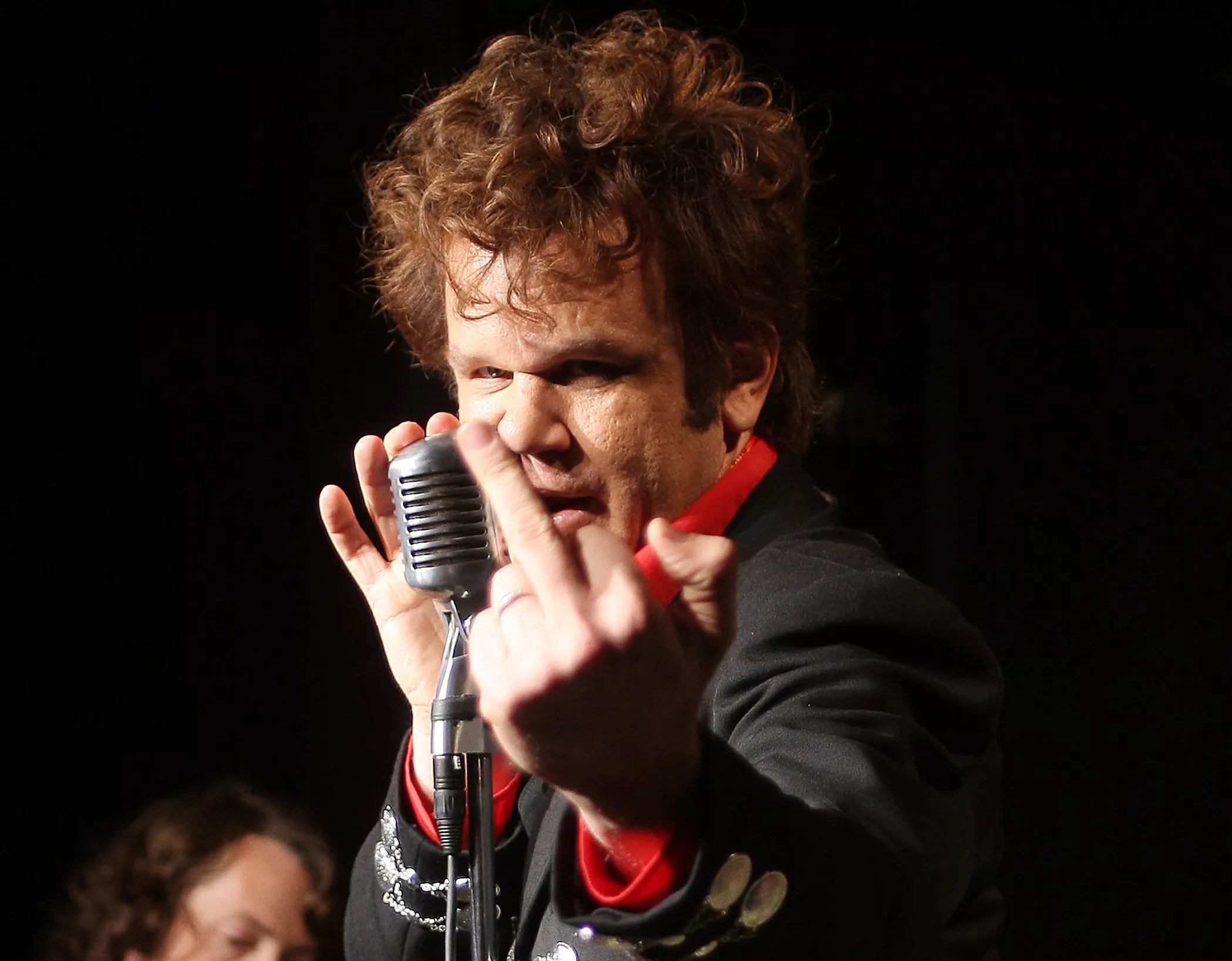
Scott Gries/Getty

Audio By Carbonatix
There’s an entire cottage industry of score composition for television shows and movies, and some of the best artists – such as Tangerine Dream, Wendy Carlos, Todd Rundgren and Giorgio Moroder – have become key players in this field.
But there’s a world of difference between composing music to set the ambiance for a scene and writing songs that are integral to the plot. Songs commissioned for fictional bands are faced with an implicit stigma in the world of music, and weaving the mediums of film and music seems like a creatively strenuous task. Despite this, Hollywood has belted out some truly remarkable songs, as proven by the below 10 examples.
Spinal Tap, “Big Bottom” – This Is Spinal Tap (1984)
This list wouldn’t be complete without granting due recognition to the greatest fictional band of all time, Spinal Tap. One of the band’s signature singles is “Big Bottom,” which opens with profound aphorisms like, “The bigger the cushion, the sweeter the pushin'” and “The looser the waistband, the deeper the quicksand.”
Big Fun, “Teenage Suicide (Don’t Do It)” – Heathers (1989)
Professional film critics and my girlfriend alike regard Heathers as the best Winona Ryder movie and laud it for its excessively visceral take on ’80s coming-of-age films like Sixteen Candles and The Breakfast Club. But more important, it ends with the aptly titled banger “Teenage Suicide (Don’t Do It).”
No word on how songwriter Don Dixon feels about adult suicide.
Rex Manning, “Say No More (Mon Amour)” – Empire Records (1995)
Maxwell Caulfield attracted an unlikely cult following for his portrayal of Rex Manning, an ’80s pop star who maintains delusions of grandeur even as he traverses a musical landscape defined by the grunge movement. It’s implied in the movie Empire Records that Manning is a one-hit-wonder, and as if to further cement that point, “Say No More (Mon Amour)” is a hella catchy song.
Powerline, “I2I” – A Goofy Movie (1995)
A Goofy Movie deserves partial blame for the ascension of furry culture thanks to the character Roxanne, and that much is evidenced by a real Change.org petition called “Force Disney to apologize for making Roxanne way too hot in A Goofy Movie,” but Powerline was such a fantastic emulation of Prince and Michael Jackson that we should just call it a wash.
“Stinky Britches” – South Park (1998)
“Chef Aid” stands as one of the most culturally significant South Park episodes in the Comedy Central series’ formidable 23-year history for its christening of the “Chewbacca defense,” but even then, fans of the show tend to overlook just how catchy the song “Stinky Britches” was. In this episode, the cafeteria worker at South Park Elementary finds out that Alanis Morrissette made a hit out of the song, which he had written years ago as a struggling musician. He files a lawsuit against Morrissette’s label, Capitalist Records, which in turn countersues him (a process known as “declaratory relief”) with the help of Johnnie Cochran.
To help with legal fees, Kyle, Cartman, Kenny and Stan organize a benefit concert called “Chef Aid” (a parody of Neil Young, Willie Nelson and John Mellencamp’s Farm Aid) and book an ensemble lineup featuring Elton John, Ozzy Osbourne, Rancid, DMX, Devo, Ween, Wyclef Jean, Meat Loaf, Joe Strummer and Primus, all of whom appeared as themselves in the episode.
This episode boasts such a who’s-who of musical talent that Rick Rubin produced an entire soundtrack album for it and released it on his label, American Recordings. Sadly, the song “Stinky Britches” doesn’t make an appearance on it.
“Walk Hard” – Walk Hard: The Dewey Cox Story (2007)
Music biopics are often riddled with clichés and excessive dramatic license, and it’s a wonder that no one thought to parody these tendencies before the 2007 release of Walk Hard: The Dewey Cox Story.
But even if you look past the boundless satirical merits and the quote-worthy lines like “Wrong kid died,” actor John C. Reilly proved himself a triple threat in this movie the same way he did in the Academy Award-winning musical Chicago. The film’s title track, “Walk Hard,” did so much justice in its homage to Johnny Cash that it earned Reilly a Grammy nomination.
Stan Smith, “Ollie North” – American Dad! (2008)
If you find yourself having to explain the Iran-Contra affair to someone unaware of the scandal that rocked the Reagan administration, show them this Schoolhouse Rock-esque clip from American Dad! As the show’s character Steve Smith says at the end of the whimsical number, “I just learned while I was being entertained!”
“We Are Sex Bob-Omb” – Scott Pilgrim Vs. The World (2010)
If you’re one of many fans of Scott Pilgrim Vs. The World, there’s nothing to say that hasn’t already been said. If you’re not a fan but a potential convert, Beck wrote this song.
Shaffer Conservatory Studio Band, “Caravan” – Whiplash (2014)
The final scene in the 2014 film Whiplash shows Miles Teller pounding the skins like Gene Krupa in what is arguably one of the greatest musical performances in film over the past decade. Still, JK Simmons’ character was quite a dick.
Sing Street, “Up” – Sing Street (2016)
You know those movies where a dude starts a band in hopes of impressing a girl? Sing Street is one of those films, but it dares to pose the question, “What if this chick magnet of a band was actually good?” Moreover, the movie effectively pays tribute to the post-punk and new wave styles that defined the ’80s, and songs like “Up” come packed with a flurry of emotion and sincerity.